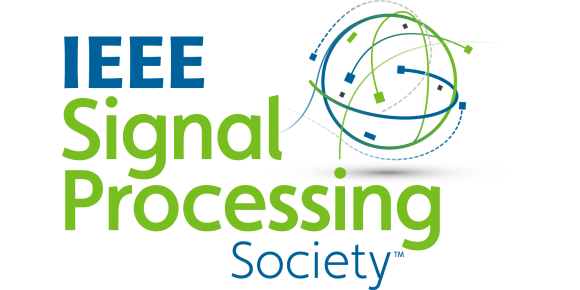Description
Over the years, the use of the Internet of Things (IoT) has come to dominate several areas, e.g., improving our lives, offering us convenience, and reshaping our daily work circumstances. Ambient intelligence (AmI) refers to the ability of devices to interact seamlessly with their surroundings. The increased use of IoT in ambient intelligence has led to a heightened concern for cybersecurity. Hackers could exploit vulnerabilities in the software or firmware of IoT devices to gain control of the devices or the networks they are connected to. They could also use ambient intelligence systems to collect sensitive data from IoT devices. In order to protect these devices, it’s essential to understand the various types of attacks that are possible and deploy appropriate security measures.
The topics of interest include (but are not limited to) the following:
The proposed special session provides a forum for bringing together researchers from academia and industry to explore and present their findings in Artificial Intelligence, cybersecurity issues of IoT, and AmI. The participants are encouraged to discuss the theories, systems, technologies, and approaches for testing and validating them on challenging real-world, safety-critical applications.
The session aims to address but not limit to the following:
- Formal Security and Resilience Analysis on AI.
- IoT Security, Trust, And Trustworthy
- Generative AI And Large Language Models (LLMs) for IoT
- Standardization and Interoperability
- Secure And Privacy-Preserving IoT Communications
- AI-Assisted Critical Infrastructure Security.
- Applied Cryptography for IoT and Ami.
- Security And Privacy of Ami.
- Applications Of Formal Methods to IoT and Ami Security.
- Blockchain For Trustworthy Ami-Based Applications.
- IoT And Embedded Systems Security.
- Demonstrations, Testbeds, Proof-Of-Concepts, And Deployments
- Cyber Threat Intelligence for IoT and Ami.
- Privacy-Preserving Machine Learning for IoT.
- Federated Learning for IoT Networks.
- Standardization And Interoperability
Important Dates
- Deadline for Paper Submissions: August 12, 2024 (Extended, Firm)
- Acceptance Notification: August 31, 2024
- Deadline for Camera-Ready Paper Submissions: TBC
All papers must be submitted through EDAS. You must choose the session track when submitting your paper in order to be considered for this Special Session. The paper should be up to six (6) pages in length. The conference allows up to two additional pages for a maximum length of eight (8) pages upon payment of extra page fees once the paper has been accepted.
The paper can be prepared using the template available through the Authors tab from the WF-IoT conference website main page at:
https://wfiot2024.iot.ieee.org/
Call For Papers:
Chairs
Dr. Abdellah Chehri, Royal Military College, Canada
Dr. Abdellah Chehri (Senior Member IEEE, #80499053) is an Associate Professor at the Department of Mathematics and Computer Science at the Royal Military College of Canada (RMC), Kingston, Ontario. Dr. Chehri is a co-author of more than 200 peer-reviewed publications in established journals and conference proceedings sponsored by established publishers such as IEEE, ACM, Elsevier, and Springer. Dr. Chehri has served on roughly thirty conference and workshop program committees. In addition, he served as guest/associate editor for several well-reputed journals. Additionally, he is a Senior Member of IEEE, a member of the IEEE Communication Society, IEEE Vehicular Technology Society (VTS), and IEEE Photonics Society. (ORCID: 0000-0002-4193-6062).
Dr. Gwanggil Jeon , Incheon National University, Korea
Dr. Gwanggil Jeon (Senior Member IEEE) received his B.S., M.S., and Ph.D. degrees from Hanyang University, Korea, in 2003, 2005, and 2008, respectively. From 2009 to 2011, he was a postdoctoral fellow at the University of Ottawa, Canada, and from 2011 to 2012, he was an assistant professor at Niigata University, Japan. He is a professor at Xidian University, China and Incheon National University, South Korea. His research interests fall under the umbrella of image processing, deep learning, artificial intelligence, smart grid, and Industry 4.0.
Dr Imran Ahmed, Anglia Ruskin University, UK
Dr Imran Ahmed (Senior Member, IEEE) received a Ph.D. degree in Computer Science from the University of Southampton, Southampton, U.K, in 2014. Currently, he is working with Anglia Ruskin University, UK. His research interests mainly include artificial intelligence, deep learning, machine learning, data science, computer vision. He has attended several international conferences in these areas. He has published numerous articles in refereed journals and conference proceedings, including IEEE Access, IEEE Transactions on Industrial Informatics, IEEE Internet of Things Journal.
Dr Muhammad Zeeshan Shakir, University of the West of Scotland, UK
Dr Muhammad Zeeshan Shakir (Senior Member, IEEE) is currently a professor of wireless communications with the University of the West of Scotland (UWS), U.K., and received over £3m research funding from Innovate U.K., ERASMUS, QNRF, and Scottish Government. With more than 15 years of research expertise in design and development of digital technologies, he has published more than 150 research articles and contributed to ten books. He is a fellow of the Higher Education Academy, U.K., and an Active Member of the IEEE Communications Society.
He is also a Royal Society Member of the Edinburgh Young Academy of Scotland through a country-wide competitive selection process for building artificial intelligence capacity across Scotland. He is the Chair of the IEEE Communications Society Emerging Technologies Committee on Backhaul/Fronthaul and the Public Safety Technology Committee Informatics. He has been a frequent Keynote Speaker/a Tutorial Speaker with IEEE Flagship Conferences, such as IEEE Globecom and ICC, and international events.
Dr. Kashif Kashif Naseer Qureshi, University of Limerick, Limerick, Ireland
Dr. Kashif Kashif Naseer Qureshi (Senior Member, IEEE) received the Ph.D. degree from the University of Technology Malaysia (UTM), in 2016. He holds the dual master’s degrees in computer science and information technology from Reputable Universities. He is an Associate Professor of Cyber Security with the Department of Electronic and Computer Engineering, University of Limerick, Ireland. He has number of book chapters and five edited books in Springer, CRC and Elsevier Publishers related to Cybersecurity, Privacy and Trust architectures. He has also a part of various research projects related to wireless communication, routing and CyberSecurity domains in the U.K., China, Ireland, Malaysia, Canada, Dubai, Vietnam, and Pakistan.
His research interests focus on the security, trust and privacy concerns for Internet of Everything (IoE), Internet of Vehicles (IoV), Electronic Vehicles (EV) charging management planning and recommendation systems, and the Internet of Things (IoT) and use cases implementation in wireless and wired networks. He is an active member of Lero, the Science Foundation Ireland Research Centre for Software at the University of Limerick (UL). His name is included in top 2% Scientist for consecutive three years from Stanford university, USA.

























